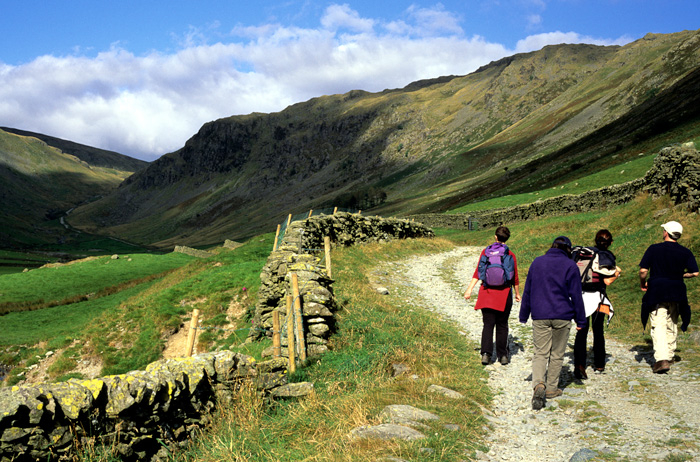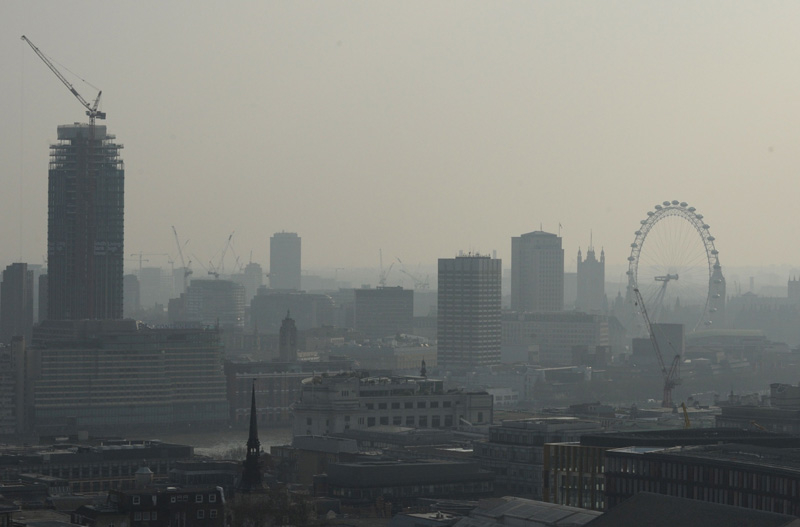Former London resident Paul Holdsworth, 57, is now much happier leading a quiet life in the scenic Lake District town of Kendal than he was in the British capital.
“I know how bad air pollution can be in the capital,” says Holdsworth. “Kendal air is much cleaner — but we still have places where legal levels of pollution are being routinely breached.” He works with 20’s Plenty for Kendal, a campaign group that aims to slash speed limits to under 20mph (32kph) as a way to encourage people to walk and cycle more in this compact little town. In the process, the group hopes make Kendal less congested, safer, quieter and a more attractive as a place to live and visit — with breathable air. The town is one of several across the UK that hopes low speed limits will increase the quality of breathable air.
“I’d encourage anyone to seriously consider leaving our capital. My quality of life shot up when I moved up here — and clean air was definitely a part of that,” he told The Guardian.
Holdsworth is one of a growing wave of hard-core city-dwellers across the world who have started relocating to the countryside to enjoy rural bliss and live in cleaner, pollution-free environments.
Mumbai-born Dubai resident Jason D’Souza, 48, is looking for a home in interior Maharastra, his home state. “When I was growing up, I couldn’t ever think of living anywhere else in India. But my allergies worsen every time I visit my parents and my family. My three nephews, in fact, have terrible asthma and dust allergies that seem to be getting worse each year and require regular medication. However, when one of them was based in Goa for two years, his asthma nearly disappeared.”
D’Souza explains that he is now looking at places around the towns of Talegaon and Dapoli, both a few hours’ drive from Mumbai and places where his friends have invested recently. “I don’t see how I can retire to Mumbai when I eventually leave Dubai — my health wouldn’t be able to cope with the pollution.”
New research indicates that people living in congested metropolises such as New Delhi or Beijing may be at greater risk of developing chronic health problems, including asthma and sinus problems due to high levels of air pollution in these cities.
What the science says
A recent study published in the American Journal of Respiratory Cell and Molecular Biology, clearly shows evidence that breathing in dirty air directly causes a breakdown in the integrity of the sinus and nasal air passages in mice.
“In the US, regulations have kept a lot of air pollution in check, but in places like New Delhi, Cairo or Beijing, where people heat their houses with wood-burning stoves, and factories release pollutants into the air, our study suggests people are at higher risk of developing chronic sinus problems,” says Murray Ramanathan, Associate Professor at the Johns Hopkins University School of Medicine.
Researchers have long known that smog, ash and other particulates from industrial smokestacks and other sources that pollute air quality exacerbate and raise rates of asthma symptoms, but had little evidence of similar damage from those pollutants to the upper respiratory system.
To see how pollution may directly affect the biology of the upper airways, the researchers exposed mice to either filtered air or polluted air.
The pollutants were concentrated levels of aerosolised particles from smog, wood burning or ash, that cause an “asthma of the nose”. The particles, although concentrated, were 30-60 per cent lower than the average concentrations of particles of a similar size in cities such as New Delhi, Cairo and Beijing, the researchers said. Nineteen mice breathed in filtered air, and 19 breathed polluted air for six hours per day, five days a week for 16 weeks.
The researchers used water to flush out the noses and sinuses of the mice, and then looked at the inflammatory and other cells in the flushed-out fluid under a microscope. They saw many more white blood cells that signal inflammation, including macrophages, neutrophils and eosinophils, in the mice that breathed in the polluted air compared with those that breathed in filtered air.
When the researchers examined layers of cells along the nasal passages and sinuses under a microscope, they found that the surface layer — or epithelium — was, notably, 30-40 per cent thicker in mice that breathed in polluted air than those that breathed filtered air.
A thicker epithelium is another sign of inflammation in humans and other animals, Ramanathan explains. “We’ve identified a lot of evidence that breathing in dirty air directly causes a breakdown in the integrity of the sinus and nasal air passages in mice,” Ramanathan says.
“Keeping this barrier intact is essential for protecting the cells in the tissues from irritation or infection from other sources, including pollen or germs.”
Until their research has been retested and other scientists have found ways to prevent such damage, moving to smaller cities might be the only way forward for residents such as D’Souza.
Last year, the World Health Organisation estimated that air quality levels are alarmingly high across the planet, with 92 per cent of the world’s population living in areas where breathable air quality exceeds safety limits. The organisation says that around three million deaths each year are linked to exposure to outdoor air pollution.
— Agencies/With input by Chiranti Sengupta and Keith J. Fernandez














